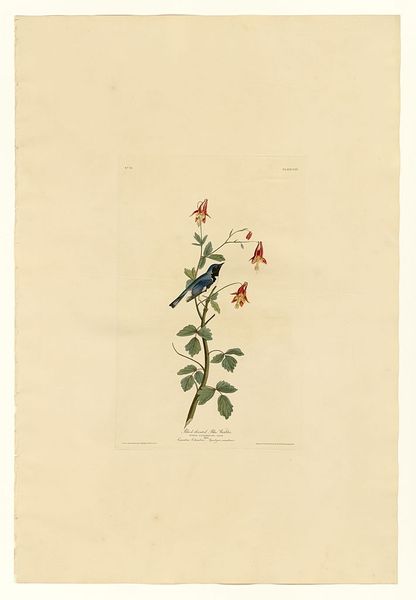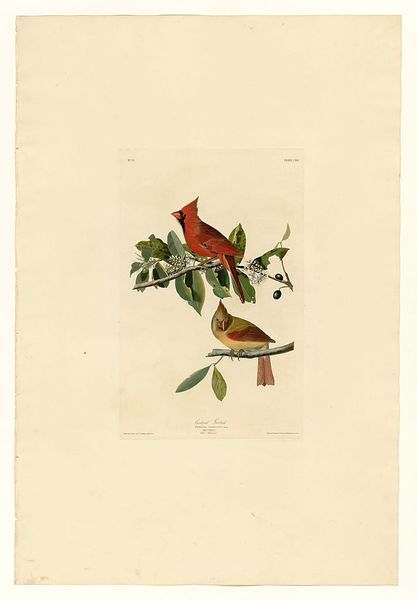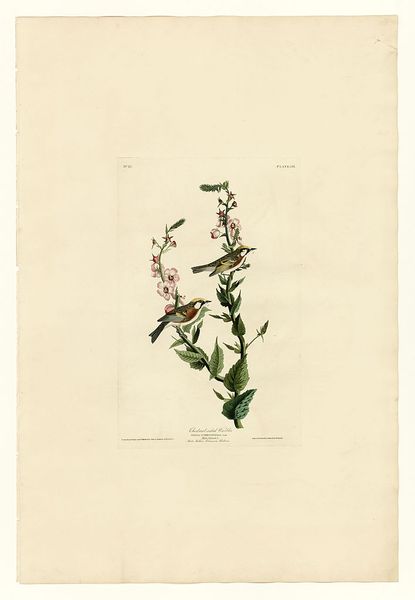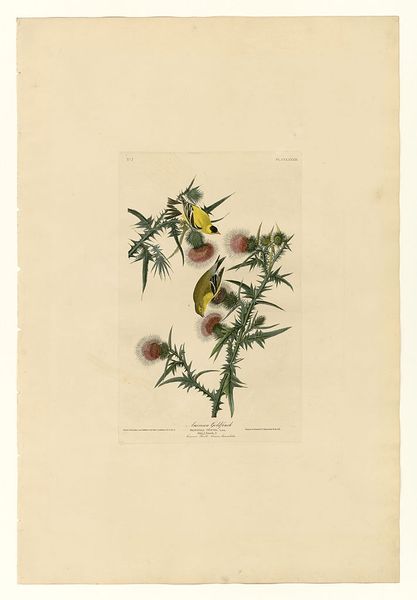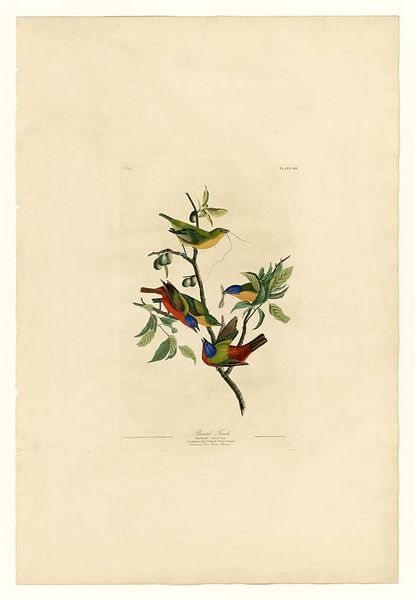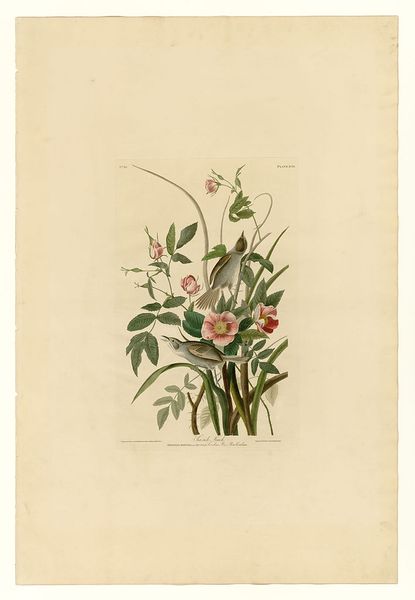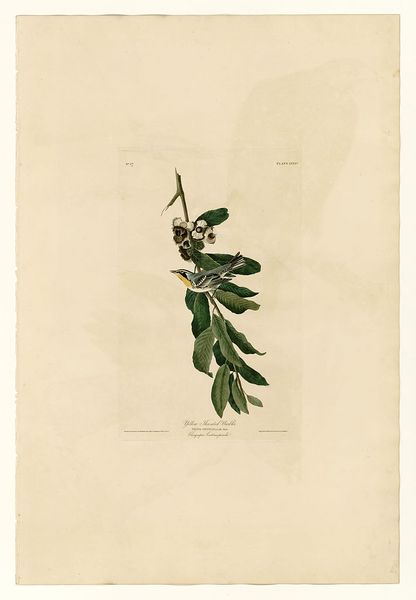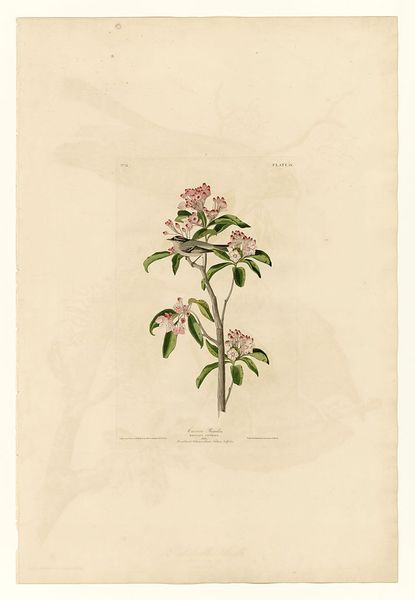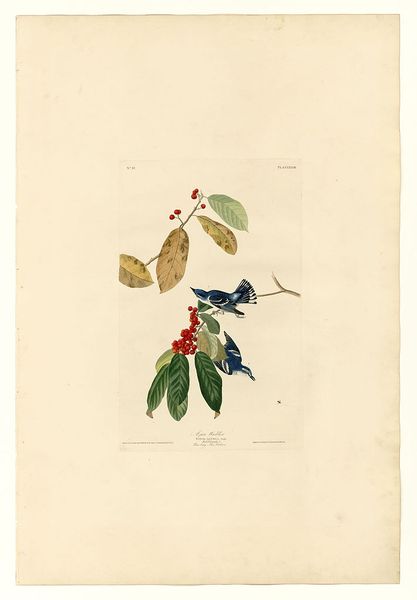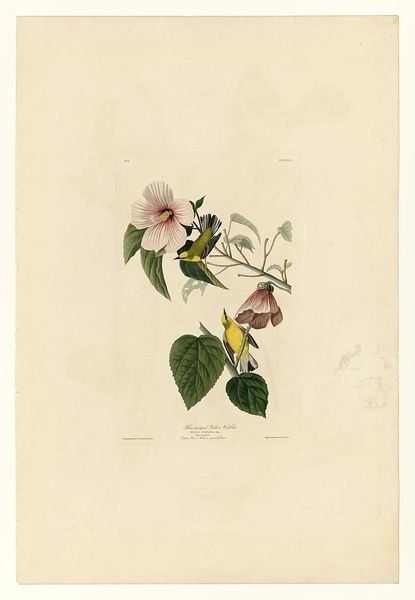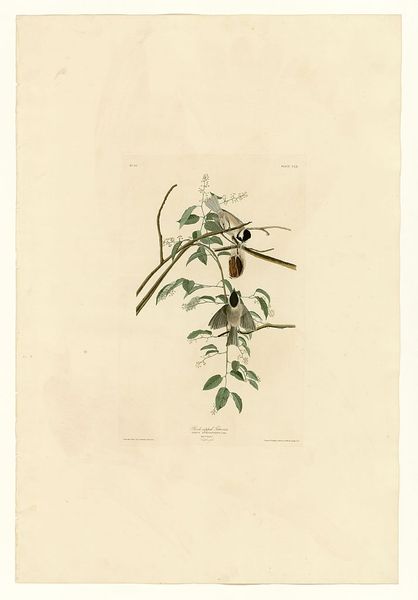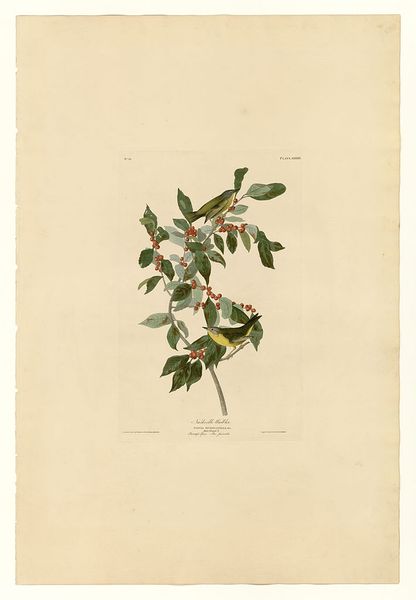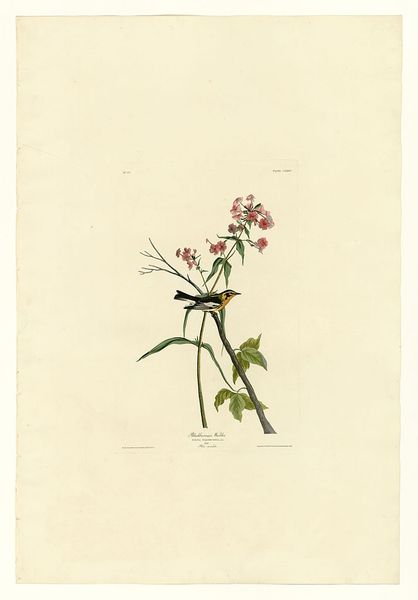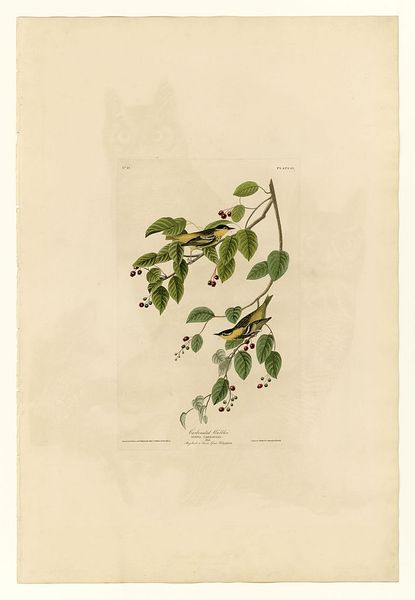
drawing, painting, print, watercolor
#
drawing
#
painting
# print
#
landscape
#
bird
#
watercolor
#
romanticism
#
history-painting
#
botany
#
academic-art
#
botanical art
#
realism
Copyright: Public domain
John James Audubon made this print, Plate 65 Rathbone Warbler, in the early 19th century, using etching, engraving, and aquatint. Audubon's work exists in a context of emerging scientific illustration. It also reflects an American desire to define itself through its unique natural resources. The print offers a meticulous depiction of the Rathbone Warbler perched among trumpet flowers. During this period, institutions like natural history museums were becoming popular. This created a demand for accurate visual representations of the natural world. Audubon responded to this by creating detailed images that were both scientific and artistic. His attention to detail reflects the Enlightenment's emphasis on empirical observation and classification. Yet his artistic approach aimed to inspire awe and a sense of American exceptionalism tied to the country's natural beauty. To fully understand Audubon’s project, we need to consult historical texts on ornithology and the cultural meanings attached to nature in 19th-century America. The history of art invites us to consider how cultural values and institutional frameworks shape both the production and reception of visual images.
Comments
No comments
Be the first to comment and join the conversation on the ultimate creative platform.
